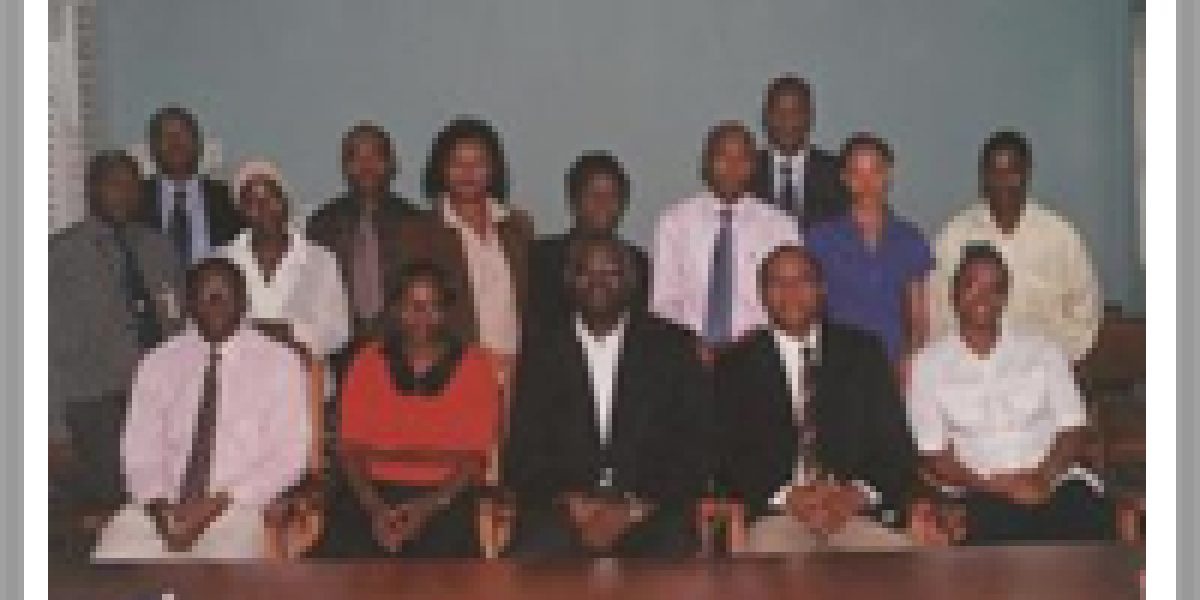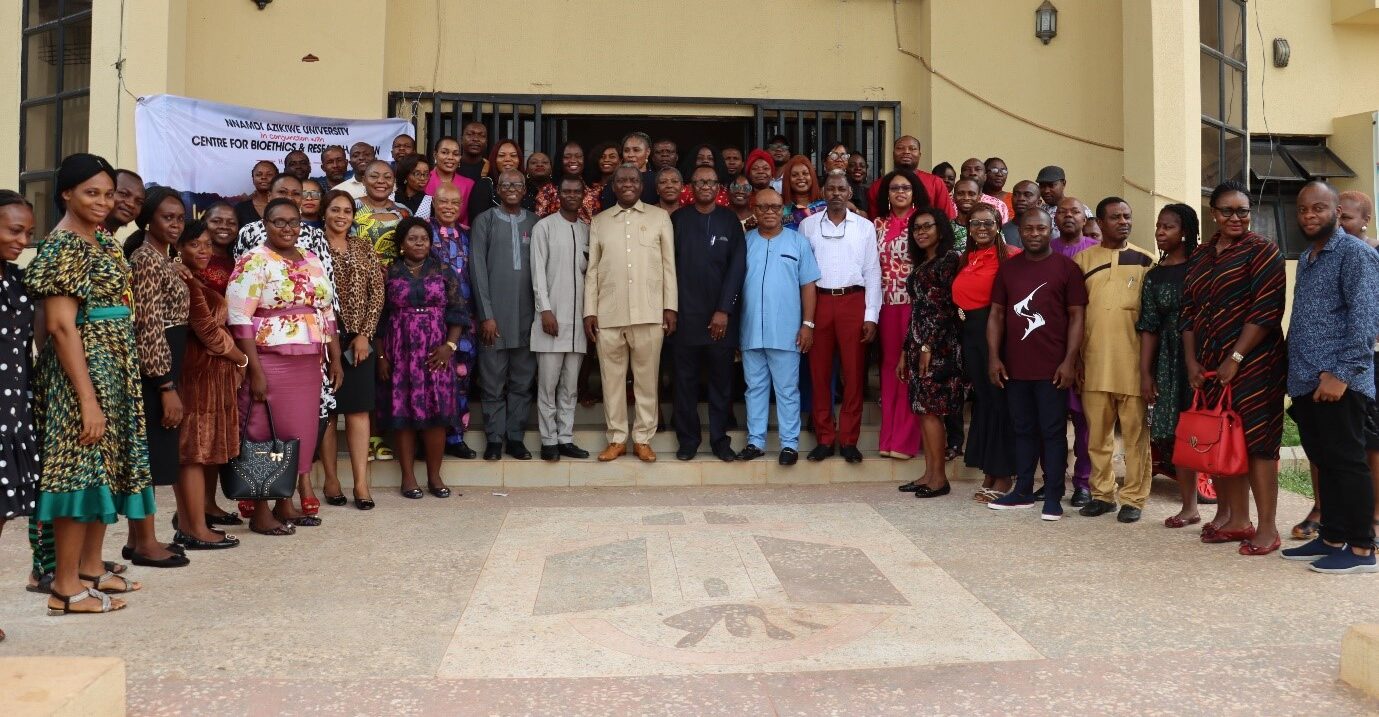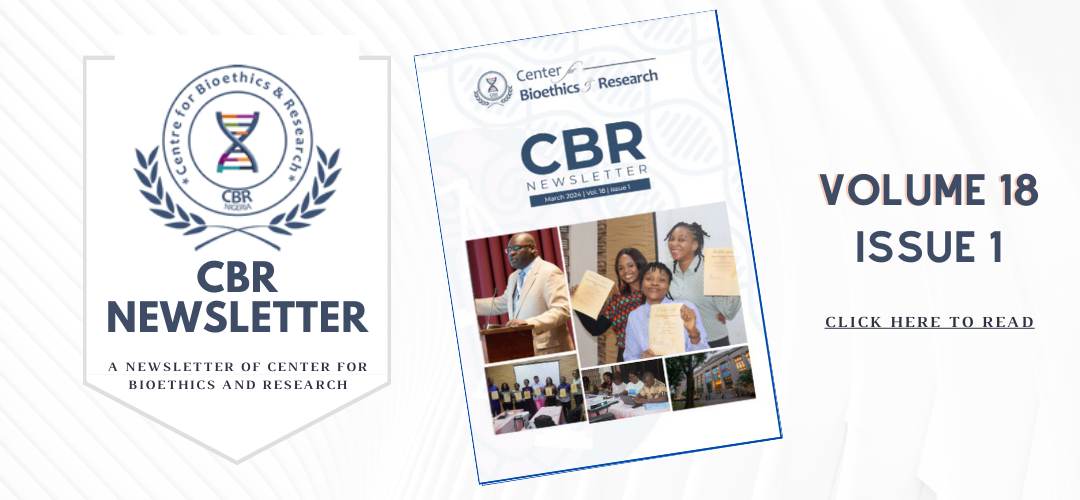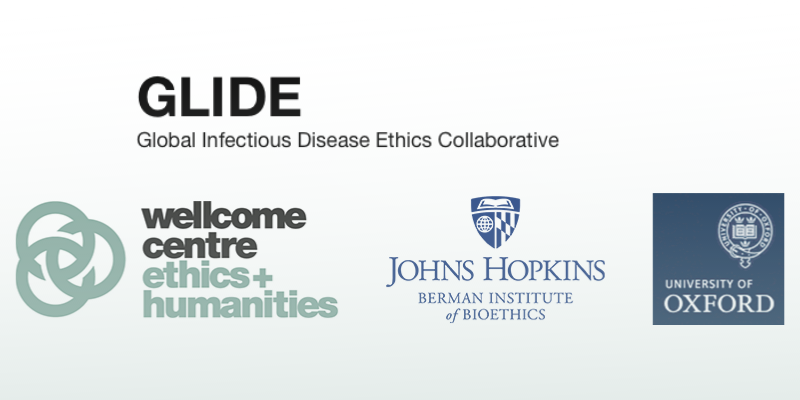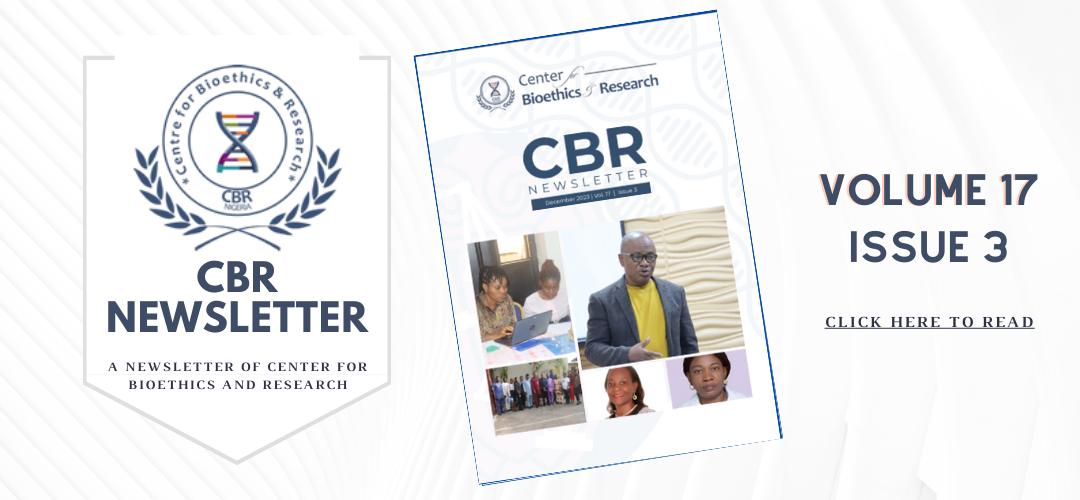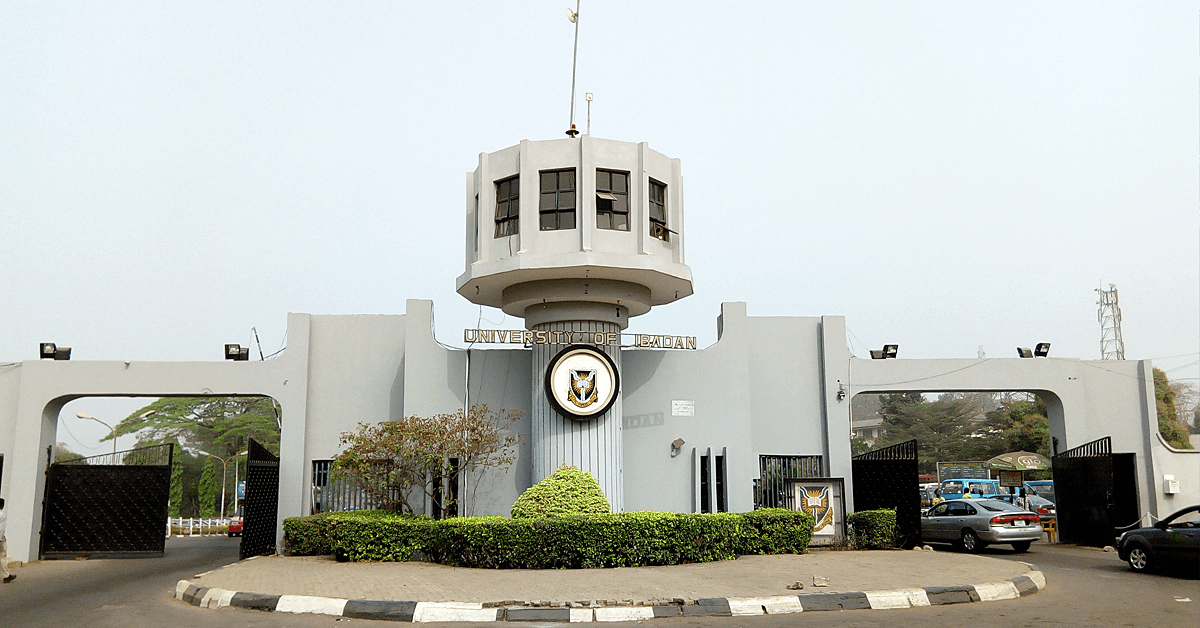Research ethics in its broadest definition encompasses the principles, standards, norms and guidelines to regulate scientific inquiry. The primary role of ethics in research is to protect the rights, integrity, and safety of research participants. One of the ways of promoting the safety of research participants is by initial and continuing-education in the ethics and science of biomedical and behavioral research for members of ethics review committees. Training for members of the committee is also required to help them provide timely and efficient review of protocols submitted to the committee.
Recently the University College Hospital/University of Ibadan Health Research Ethics Committee was reconstituted. As a result some new members were appointed to serve on the committee. Not all of these members have had previous formal training on research ethics generally and specifically on the role of an ethics committee. These members need to be trained to enable them make their contributions in achieving the committee’s role and oversight functions. A training program was organized to address this nee. This report describes the process and outcome of the training.
The program was held from December 10-11, 2008 inside the conference room of the Institute of Advanced Research and Training, College of Medicine, University of Ibadan. Fifteen members of the committee participated in the training (see appendix one for details). The training was sponsored by both the College of Medicine’s Management and the West African Bioethics Training Programme (WABTP).
Training Objectives
The objectives of the training were to:
- Improve trainees knowledge, understanding and application of the principles of research ethics
- Expose trainees to the national and international guidelines and regulations on research involving human participants
- Increase trainees knowledge of the role and functions of HREC using the national guidelines
- Deepen trainees understanding of the roles of investigators & Ethics Review Committees in protecting persons who participate in research
- Equip trainees with knowledge & skills to deal with the ethical challenges they may face in their future research activities
Methodology
Four resource persons presented nine papers covering all the relevant aspects of research ethics including historical perspectives of research ethics, principles of research ethics, requirements for informed consent, functions of ethics review committee, protection of research participants, research designs, vulnerability, voluntariness and clinical equipoise (see appendix two for details). All the presentations are on power-point and these were provided on CD for members. In addition, reading materials were provided for each of the participant. The training was participatory in design.
Problems and Recommended Solutions
During the interactive sessions the members of the committee discussed extensively on the problems encountered in the course of proposal review. Some of the issues and problems identified include:
(a) How to determine the rigor of the research design of the proposals submitted for review.
(b) A discussion of the dual role of the committee to scrutinize not only the ethics of a research but also its scientific rigor
(c) How to determine a fair compensation for persons who participate in research that take place in developing country setting like Nigeria
(d) The challenge of setting standard of care in settings like Nigeria where there is no apparent standard of care
(e) The challenge of reviewing proposals of poor quality both in terms of scientific rigor and presentation
(f) Problems relating to how to adequately compensate members of the committee and reviewers for the job they for the committee
(g) Poor funding by the institution
The participants suggested measures that will address the problems identified including the recommendations that:
(a) The University community at large should be sensitized and trained on principles of research ethics that will enable them write good proposals and conduct ethically acceptable and scientifically sound research.
(b) The University Management should provide adequate funds for the committee to enable it perform if oversight functions effectively.
Evaluation
Nine participants completed the form to evaluate the workshop. The findings show that overall the majority of the participants agreed that the organization of the workshop met their expectation while a few said it exceed their expectation. The trainees also rated the components of the workshop. The majority rated as ‘excellent’ the sessions on history of research ethics, concept of vulnerability and informed consent (See table One).
When asked which components of the workshop they liked, many trainees said the interactive nature of the sessions was the most beneficial (see Table two).
Conclusion
The objectives of the training have been achieved. It is anticipated that there will be improvement in members of the committees’ capacity to meet their oversight functions. There is also hope that similar programs will be provided for members as part of their continue education.
Table one
Assessment of components of the training
|
|
Excellent |
Very good |
Fair |
Poor |
|
Learn about the history of research ethics |
6 |
2 |
|
– |
|
Learn about national guidelines for health research |
1 |
6 |
|
– |
|
Learn about the role of ethical Review Committees |
4 |
4 |
|
– |
|
Learn about process of informed consent |
5 |
4 |
|
– |
|
Learn about the requirements for informed consent |
4 |
5 |
|
– |
|
Learn about the application of the principles of ethics in research |
3 |
4 |
2 |
– |
|
Learn about the concept of vulnerability |
6 |
3 |
|
– |
Table two
Opinion of participants on components of the training
|
s/n |
Question |
Response |
|
|
3 |
What do you like most about the programme |
|
1 1 1 4 1 1 |
|
4 |
What do you dislike about it |
|
1
5 1 1 1 |
|
5 |
What is the most important knowledge or skill you learnt from this workshop |
|
1 1 1 4 1
1 |
|
6 |
What suggestion do you have for improvement |
|
1
1
1
1
1 1 1 1 1
|
 |
 |
|
 |
 |
|
 |
 |
|
 |
 |
|

